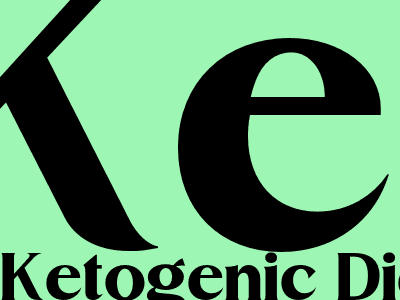The Ketogenic Diet: A Comprehensive Guide
What is the Ketogenic Diet?
The ketogenic diet, often abbreviated as keto, is a low-carb, high-fat diet that has gained popularity in recent years as a weight loss and health optimization strategy. The diet works by forcing the body to burn fat for fuel instead of glucose, a process known as ketosis.When the body is in ketosis, it produces ketones, which are molecules that can be used as an alternative energy source to glucose. Ketones are produced when the liver breaks down fatty acids.
The ketogenic diet typically includes 70-80% fat, 15-20% protein, and 5-10% carbohydrates. The diet is often very restrictive, and it is important to work with a healthcare professional before starting the diet.
Benefits of the Ketogenic Diet
The ketogenic diet has been shown to have several health benefits, including:
- Weight loss
- Improved blood sugar control
- Reduced inflammation
- Increased energy
- Reduced risk of heart disease
- Improved cognitive function
- Reduced risk of cancer
Weight Loss
One of the most well-known benefits of the ketogenic diet is its effectiveness for weight loss. The diet helps to promote weight loss by reducing hunger and increasing satiety. Additionally, the diet helps to preserve muscle mass, which is important for maintaining a healthy weight.Improved Blood Sugar Control
The ketogenic diet has also been shown to improve blood sugar control in both type 1 and type 2 diabetes. The diet helps to lower blood sugar levels by reducing the amount of glucose produced by the liver. Additionally, the diet helps to improve insulin sensitivity, which is important for regulating blood sugar levels.Reduced Inflammation
The ketogenic diet has also been shown to reduce inflammation throughout the body. Inflammation is a major risk factor for several chronic diseases, including heart disease, cancer, and Alzheimer's disease. The diet helps to reduce inflammation by reducing the production of inflammatory cytokines.Increased Energy
The ketogenic diet can also help to increase energy levels. The diet helps to provide a steady source of energy throughout the day by burning fat for fuel. Additionally, the diet helps to improve mitochondrial function, which is important for energy production.Reduced Risk of Heart Disease
The ketogenic diet has also been shown to reduce the risk of heart disease. The diet helps to lower cholesterol levels, reduce inflammation, and improve blood sugar control. All of these factors contribute to a reduced risk of heart disease.Improved Cognitive Function
The ketogenic diet has also been shown to improve cognitive function. The diet helps to protect neurons from damage and improve neurotransmitter function. Additionally, the diet has been shown to reduce the risk of developing neurodegenerative diseases, such as Alzheimer's disease.Reduced Risk of Cancer
The ketogenic diet has also been shown to reduce the risk of cancer. The diet helps to inhibit the growth of cancer cells and promote apoptosis, or cell death. Additionally, the diet has been shown to reduce the risk of developing several types of cancer, including breast cancer, colon cancer, and lung cancer.Risks of the Ketogenic Diet
The ketogenic diet is a very restrictive diet, and it is important to be aware of the potential risks before starting the diet. Some of the potential risks of the ketogenic diet include:
- Nausea and vomiting
- Constipation
- Headaches
- Fatigue
- Electrolyte imbalances
- Kidney stones
- Gout
Nausea and Vomiting
Nausea and vomiting are common side effects of the ketogenic diet, especially during the first few days. These symptoms are caused by the body adjusting to the new diet.Constipation
Constipation is another common side effect of the ketogenic diet. The diet is low in fiber, which can lead to constipation.Headaches
Headaches are also a common side effect of the ketogenic diet. These headaches are caused by the body adjusting to the new diet.Fatigue
Fatigue is another common side effect of the ketogenic diet. The diet can lead to fatigue because it takes time for the body to adjust to burning fat for fuel.Electrolyte Imbalances
The ketogenic diet is also a diuretic, which means that it can cause the body to lose electrolytes. Electrolyte imbalances can lead to several health problems, including muscle cramps, fatigue, and headaches.Kidney Stones
The ketogenic diet can also increase the risk of kidney stones. This is because the diet is high in protein, which can lead to the formation of kidney stones.Gout
The ketogenic diet can also increase the risk of gout. This is because the diet is high in purines, which can lead to the formation of uric acid crystals in the joints.How to Start the Ketogenic Diet
If you are considering starting the ketogenic diet, it is important to speak with a healthcare professional first. The diet can be very restrictive, and it is important to make sure that the diet is right for you.If you are cleared to start the diet, there are a few steps you can take to get started:
- Start by gradually reducing your carbohydrate intake.
- Increase your fat intake.
- Make sure to drink plenty of fluids.
- Monitor your blood sugar levels.
- Work with a healthcare professional to make sure that the diet is right for you.

Comments